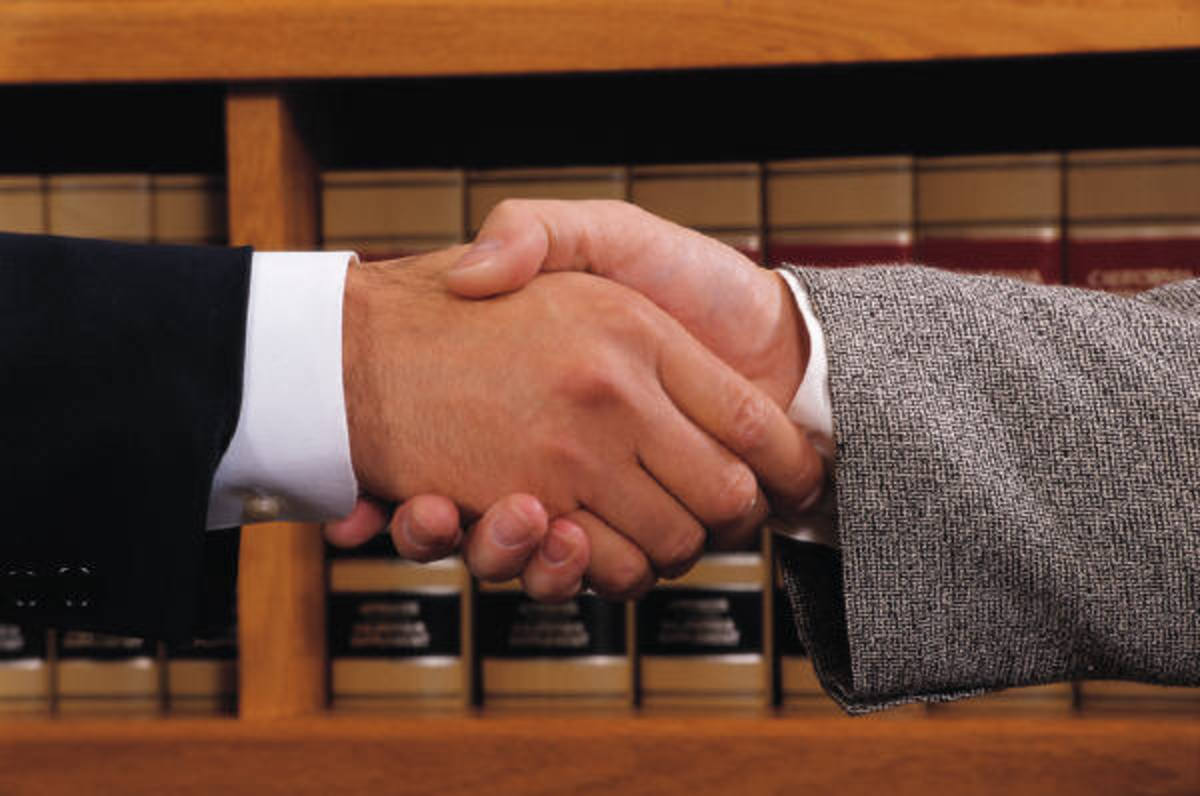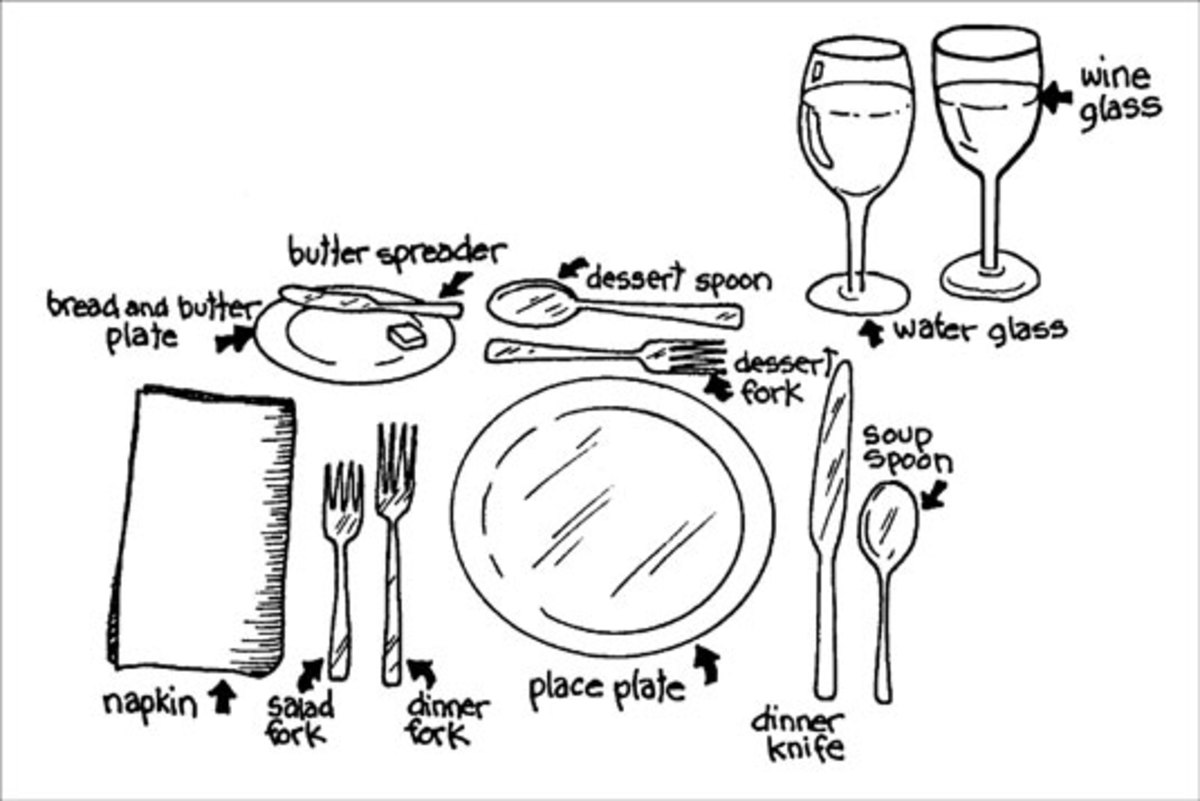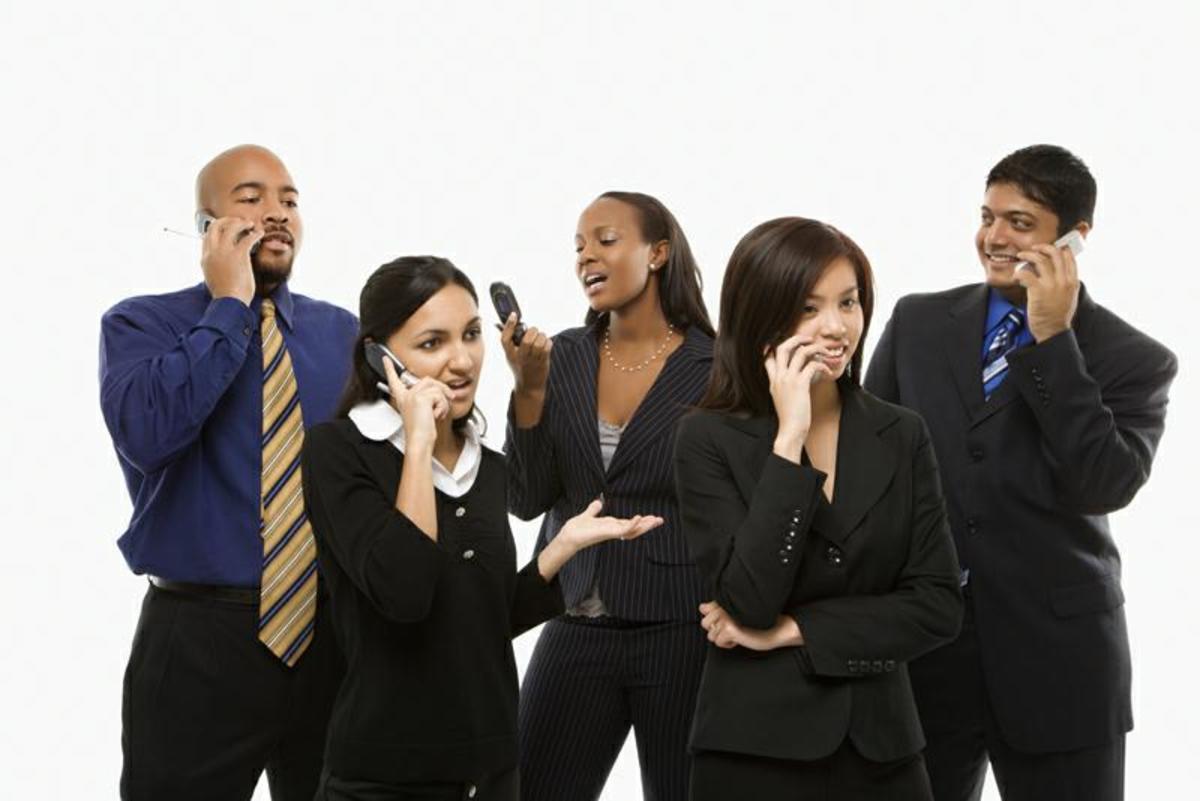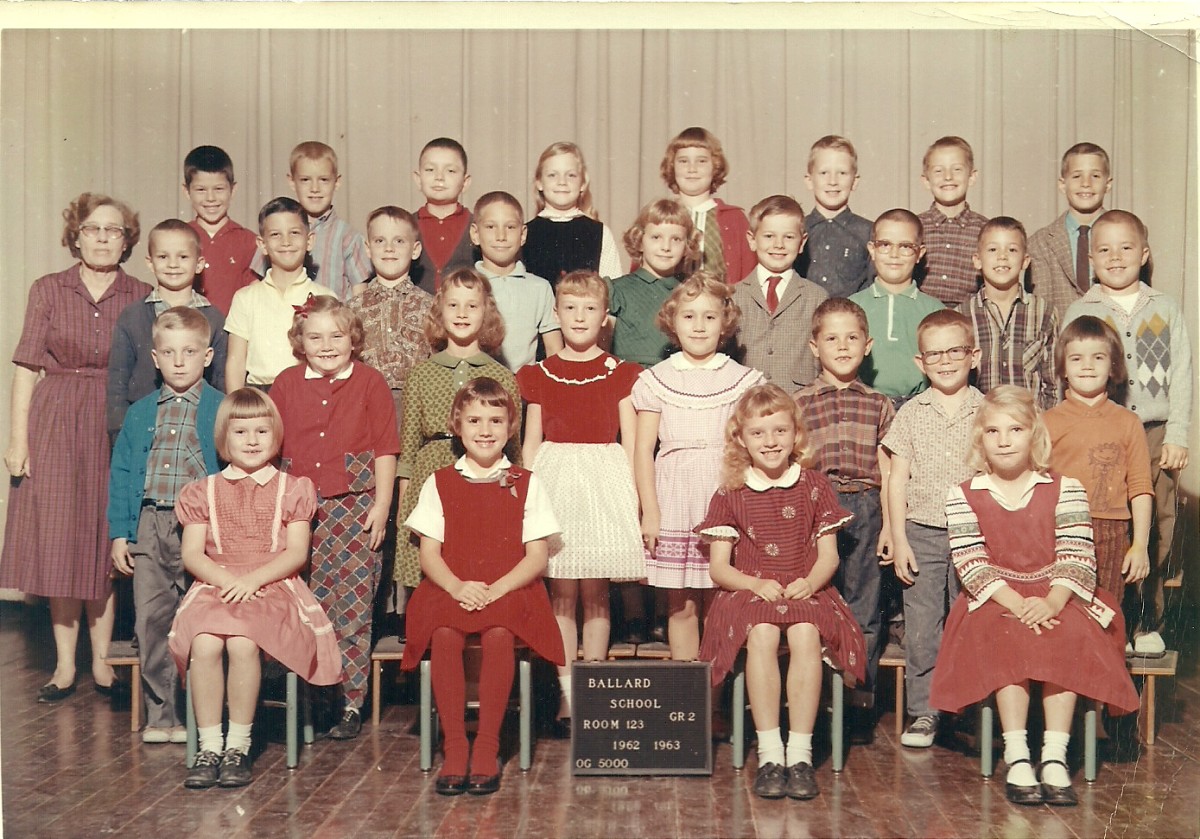Etiquette as a Survival Skill: How Polite Manners Can Give Us Tranquility
How Miss Manners Changed My Life
As a child, I was taught manners in much the same way everyone around me was taught manners—mostly at the dinner table. Sit up straight; don't talk with your mouth full; don't gulp your drink; say "please" and "thank you"; don't interrupt someone else; ask permission to leave the table. And we were taught by example: unless my father is in his recliner (he's now older and stiff), he stands up when I or my mother enters or leaves the room; my father offers to help my mother or me carry packages, even when his back hurts; my mother writes elaborate thank-you letters for even the most mundane favours.
And all this served me well throughout my high school and college years. I tried not to speak ill of others, even when they spoke ill of me. I was polite to my teachers and professors, and the janitors, and everyone in between. Oh, I may have been disobedient, but I was polite and cheerful about it when caught, and mostly I stayed out of trouble. But my manners were an everyday habit, and as a result, I never thought much about them.
And then, when I was in my twenties, I had an experience that changed me permanently. I was in a social club where it was common to jokingly insult each other, and I willingly participated. And then, I made one of those joking insults about someone, and saw a hurt look in their eyes, and I vowed that from that monment I would never to do that ever again. At that point, I had a stroke of luck; I stumbled across Miss Manners' Guide to Excruciatingly Correct Behavior by Judith Martin—and that book, and its sequels, made a profound difference in my life. If I had gotten along with people reasonably well before, I got along with them famously now. I suddenly became the most popular person in my social circle, when I had never been popular in my life. I experienced such a complete transformation that I was absolutely dumbfounded.

You're Kidding about Manners Saving Your Life, Right?
No book is going to change my life completely, you're thinking. But etiquette is more than just a social mechanism for getting along with people. Etiquette is an essential survival skill. Don't believe me? Read on.
- Good manners saved my job, on more than one occasion. While around me everyone was being laid off or downsized, my job lingered on, longer than most, even if my perceived value to the company may not have been as great as that of some other workers. Why? Because my bosses felt good when I was around them. Without being flattering or ingratiating, I simply found ways to be polite and respectful to them.
- Good manners saved several relationships from becoming ugly at the moment of breakup. One time I was actually afraid of being struck during a breakup—but my cool saved the day and I was able to exit a public place with my dignity and physical integrity intact, because I did and said the polite thing.
- Good manners saved the day on many social occasions, including difficult holiday dinners with in-laws and difficult funerals. Because I had had so much practice, I was able to emerge from extreme family disagreements with no-one mad at me, even when I was the outsider and it felt like everyone was on the other side.
- Good manners allowed my family and extended family to feel good about supporting me through difficult times. Among other things, I kept their larger social relationships intact with one simple social task done on time--and that one task, completed promptly, made an entire network of strangers my friends. (More on this later.)
- Good manners saved many friendships. By thinking through carefully all the implications of what I was saying, and what I really meant to accomplish, I was able to remain friends with people at difficult times in their lives when they had shut out everyone else. Those other people said what they thought was the right thing, but it turned out to be really wrong!
- Good manners has really improved my business. When I started my own business and was introduced to business networking, my polished good manners set me apart from many other business owners who were not accustomed to dealing with others courteously and respectfully.
Miss Manners: Good Manners Made Snarky

The Top Ten Problems and How Etiquette Solves Them
Many people have many problems that are common to almost all of us. However, the practice of etiquette will help in all these areas, in sometimes surprising ways!
- Lack of self-esteem: Ny study of what to do and say in difficult situations increased my self-confidence because I knew that no matter what came up, I would automatically do or say the right thing after years of practice in being polite. Now I rarely have to think about what to say or do, because saying or doing the right thing comes naturally to me.
- Lack of discipline: Good manners teaches self-discipline over what you say and do. That lifetime of discipline pays off in many ways.
- Lack of people skills: Good manners is all about people skills! In fact, people skills become automatic behavior after a very short time of practicing good manners. Don't believe it? Practice good etiquette for a few months and see what happens to your people skills!
- Lack of communication: I hear a lot about brutal honesty. Honesty should not be a cause for brutality—that is uncivilized. Honesty can be kind, too. And people will more readily accept your message if it is sweetened with real concern for their well-being, and that includes their personal, emotional, and social well-being.
- Lack of organization: Good manners imposes a sense of social organization, and that sense of social organization then tends to make other kinds of physical organization much easier.
- Lack of time: Good manners means being prompt and respecting other people's schedules. This will also help your own time availability, because if everything runs smoothly, you will have more time available for yourself, your own tasks, and your family.
- Lack of respect: Showing respect for others, by being polite to them, will instill in them a sense of respect for you.
- Lack of money: The more people respect you, the more money they think you are worth paying for. And if you are a small business owner, your customers will pay more for courteous and personal service.
- Too much competition: Etiquette will mark you as a clear winner, all other things being equal. Good manners set you apart! Did you know that many people get hired, simply because they took a few minutes to write a personalized thank-you letter after the interview?
- Lack of writing skills: Repeatedly writing letters of condolence and congratulations, thank-you letters, dinner invitations, and responses to all those kinds of correspondence will give you excellent practice in writing. As a bonus, you will learn how to spell the word "congratulations" properly!
My Etiquette Secret for Getting Along with my In-Laws
I mentioned earlier that there was a simple task that really made the difference in my relationships with my in-laws (and therefore my husband). It took only a few minutes each day and this one task paid off handsome dividends throughout my marriage.
I cheerfully said, "Good morning," and "Thank you," to the UPS man who delivered my wedding presents. He was so impressed when I told him what I was doing, that he made my stop one of the first on his route. I opened each present just enough to figure out what it was, and who sent it. Then I sat down with my stationery and pen and wrote an enthusiastic thank-you note to each person that very minute. By the time the postman showed up, all my thank-you letters were done and stamped, and by saying "Good afternoon" and "Thank you" to the postman, I impressed him enough that he set my letters in the stack to be processed first. He even lent me stamps once when I ran out--long before the post office delivered stamps--long even before cell phones!
At the reception, my in-laws were ecstatic because all their friends had called them with the news that this bride had written the thank-you letters so promptly. The friends of the in-laws showed up at the reception, and complimented my mother on her excellent child-rearing skills, and some of them even joked that I must have been psychic and written the thank-you letter as soon as the credit card slip was processed, because there was no way that it was physically possible to get the letter in the mail that fast. And so my whole family went home from the wedding reception in a great mood, instead of being disgruntled and irritated. When I came back from the honeymoon, my in-laws were ready to treat me like one of the family.
And the other benefit was that except for the presents brought to the reception itself, I went on my honeymoon with a clear conscience and had only a dozen letters to send out when we returned home, instead of facing a mountain of correspondence.
Business Etiquette

A Very Simple Etiquette Rule for Customer Retention
Most of my small business income is paid by the customer in the form of checks. I use one very simple trick for retaining customers, and my customers enthusiastically refer me to their friends.
This simple trick is: I thank them each and every time, by writing "For deposit only. Thank you for your business," by hand, on the endorsement area of each check. For an extra second's worth of effort, I manage to increase my customer retention enormously, and they don't feel nearly so bad about paying their balances!
Are Manners the Key to Popularity?
It's an established evolutionary fact: our brains are wired for pleasure. When we are around people who make us feel good, we want to be around them more often. While snarkiness and pettiness may win a few friends in the short term, in the long term people want to be around people they like, and it's far easier to like a polite person than it is to like someone rude!
Are You Ready to Put the "Civil" Back in "Civilization"?
Is politeness important?
Never Underestimate the Power of Politeness
Politeness pays off in all kinds of unexpected ways, from the maintenance man who bumps up my repairs to his first priority, to the customer service call center employee who credits my account ten dollars because I was polite to her and she feels sorry for the trouble I've had, to the employee of the Internal Revenue service who goes out of her way to explain something to me because I sensed she was having a bad day and said something nice to make her feel better. Good manners means that you always come out ahead of the competition. In fact, everything goes better with etiquette!
Another Reason to Teach Your Children Etiquette
It is all too unfortunate that nowadays it seems to be common that children are threatening and even wounding and killing each other over perceived slights. Some of these children will end up with criminal records. Other teenagers and young adults are ruining their lives with their remarks being caught on cell phones and uploaded to social media.
Among other things, learning to be polite means to moderate what you say to others or about others. When you watch the news, notice the stories, and ask yourself how many times a little politeness could have saved the day for some young person who simply didn't think ahead, because they did not have the ingrained habit of polite and respectful behavior towards others.
This content is accurate and true to the best of the author’s knowledge and is not meant to substitute for formal and individualized advice from a qualified professional.
© 2010 classicalgeek








